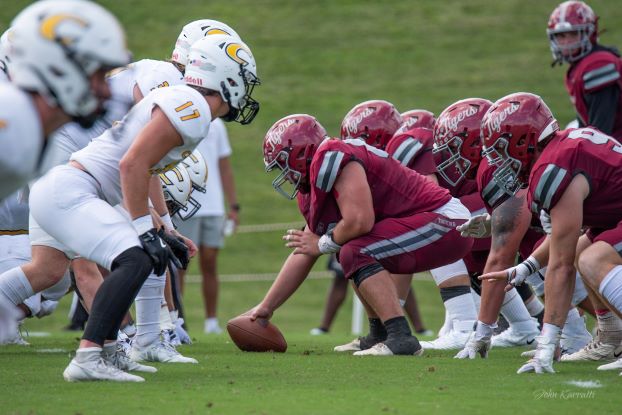Tommy Wright: Put down those phones
Published 10:23 am Sunday, February 18, 2024
|
Getting your Trinity Audio player ready...
|
Virginia students might be in for a new adjustment when they attend schools. House Bill 882 came before the education committee and requires the Board of Education to set a model policy for cell phones in schools — broadly speaking, that they can’t be used during instructional time. This bill will be continued in 2025 and will be considered a step in the right direction for our students.
The goal is not only to improve academic performance, but to improve student wellbeing. From an article in Education Next: The pandemic occurred amid a broader epidemic. Long before Covid-19, psychologist Jean Twenge had found spiraling levels of depression, anxiety, and isolation among teens.
“I had been studying mental health and social behavior for decades and I had never seen anything like it,” Twenge wrote in her 2017 book iGen. This historic downturn in the well-being of young people coincided almost exactly with the dramatic rise of smartphones and social media. More specifically, it coincided with the moment when they both became universal and being disconnected or an infrequent user was no longer viable.
Trending
We know that phones are a distraction, but more and more research show that they have a negative impact on students.
From the Atlantic: “Studies have shown that students on their phone take fewer notes and retain less information from class, that “task-switching” between social media and homework is correlated with lower GPAs, that students who text a lot in class do worse on tests, and that students whose cell phones are taken away in experimental settings do better on tests.”
This bill calls on the Board of Education to set a simple policy – phones are away and out of sight during educational time. If they’re not, they’re confiscated. This strikes a balance between the need to stay in touch with parents, and the negative impact phones have on behavior and Education.
Republicans Told You
Ford recently announced major cuts to their EV production, and a delay or cut of $12 billion of investment in EV programs. The company halved their production of the electric Ford F-150.
General Motors announced they will delay plans to expand EV production in Michigan. GM is discontinuing the lower priced Chevy Bolt – their bestselling EV in 2023. Earlier this week Hertz announced that they will not follow through on a plan to buy 65,000 EVs for their fleet. People just don’t want these cars. Half of all Buick dealers in the U.S. recently took a buyout rather than invest in the brand’s all electric.
Meanwhile, Virginia is nowhere close to meeting the mandated 35% of all new sales be EVs by 2026. That’s in just 1 model year. It then goes up to 43 in 2027 and 51 by 2028.
Trending
Last year, that number was 9%.
According to dealers, “we would need to have some significant movement on a more exponential trajectory to hit that number”; said Liza Borches, CEO of Carter Myers Automotive, which operates five dealerships in Central and Southside Virginia.
New data shows that Virginia’s charging infrastructure is woefully inadequate for the few EVs on the road now. Installation of charging stations missed the mark by an astounding 76% in the US in 2023 according to the Bloomberg NEF.
Del. Tommy Wright can be reached via email at DelTWright@House.Virginia.gov or (804) 698-1061.





